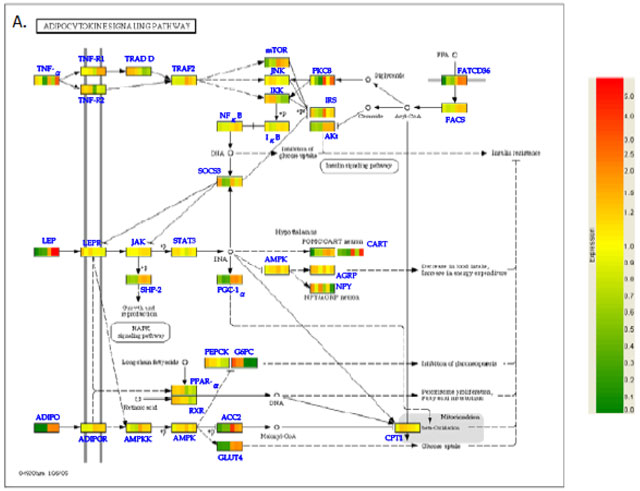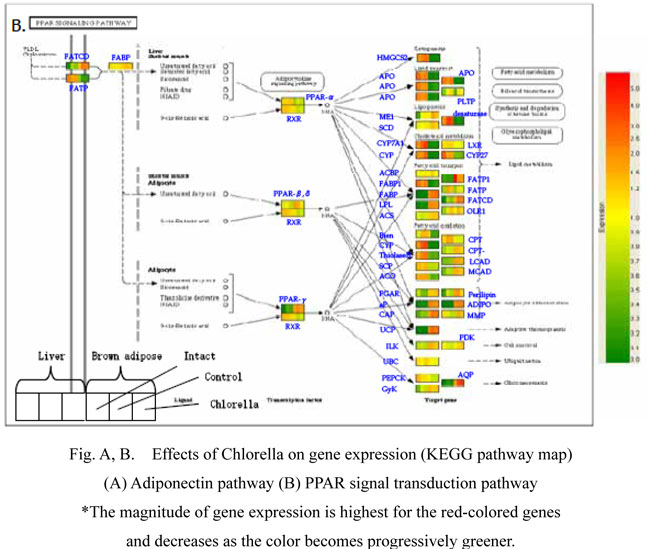- TOP
- List of reports
- Publication of the Results of the Study of the Effects of Chlorella on Metabolic Syndrome
Publication of the Results of the Study of the Effects of Chlorella on Metabolic Syndrome
【Scientific information】
Research and Development Department, Sun Chlorella Corporation
Publication of the Results of the Study of the Effects of Chlorella on Metabolic Syndrome
in the Academic Journal Medicine and Biology (Vol. 153 No. 8)
Metabolic syndrome involves the coexistence of multiple diseases (obesity, hyperglycemia, hyperlipidemia, and hypertension). Metabolic syndrome has recently become a significant healthcare issue in Japan. We reported the results of our clinical studies on the effects of Chlorella against metabolic syndrome at the 60th Conference of the Japanese Society of Nutrition and Food Science (2006) and published the same results in the Journal of Medicinal Food (Vol. 11 No. 3, 2008). The results of studies in obese mice were presented at the 81st Conference of the Japanese Pharmacological Society (2008) . Recently, the results of our study on the effects of Chlorella intake by obese mice through analysis of gene expression were published in Medicine and Biology (Vol. 153 No. 8), and are reproduced below.
- Study Objectives
- The study was designed to evaluate the effects of Chlorella in alleviating metabolic syndrome, and to elucidate the mechanism for such action using spontaneously obese mice (ob/ob mice) genetically destined to develop obesity and obesity-related disease.
- Method of experiments
- Mice were divided into three groups: normal mice fed an ordinary diet (ordinary diet normal mouse group); obese mice fed an ordinary diet (ordinary diet obese mouse group); and obese mice fed with a 5% Chlorella-added diet (Chlorella-treated obese group). Each mouse was reared for eight weeks. Changes in body weight, diet consumption, blood pressure, serum adiponectin level, insulin level, levels of other hematological parameters, and gene expression in the liver and brown fat tissue were analyzed.
- Results
- Chlorella-treated mice showed significant reduction of serum total cholesterol level and insulin level as well as significant elevation of adiponectin level as compared with mice fed an ordinary diet. Treatment with Chlorella significantly suppressed the elevation of systolic blood pressure without affecting heart rate. In the analysis of gene expression, Chlorella was found to affect the expression of genes associated with bile acid synthesis, carbohydrate metabolism and appetite adjustment (Akt, LEPR, NPY, CYP7A1 and CYP8B1 in the liver and IRS, AMPK, CART, AGRP, and NPY in brown adipocytes). These results indicate that Chlorella helps to alleviate metabolic syndrome.


Specifications of the article
- Journal:
- Medicine and Biology (Vol. 153 No. 8, 327–333)
- Title:
- Effects of Chlorella on the Metabolic Syndrome using Spontaneous Obese Mice
- Authors:
- Toru Mizoguchi, Yukari Arakawa, Masaki Fujishima
- Affiliation:
- Sun Chlorella Corporation





